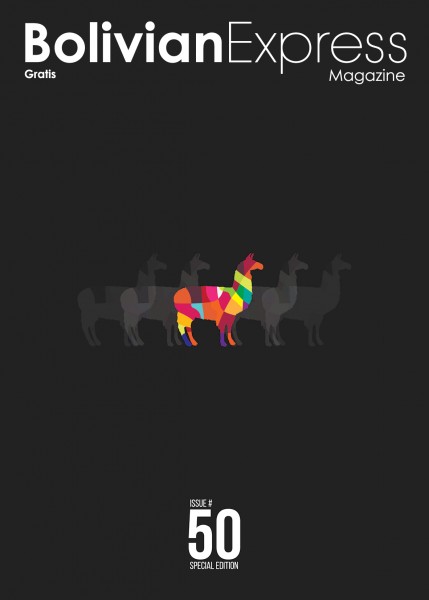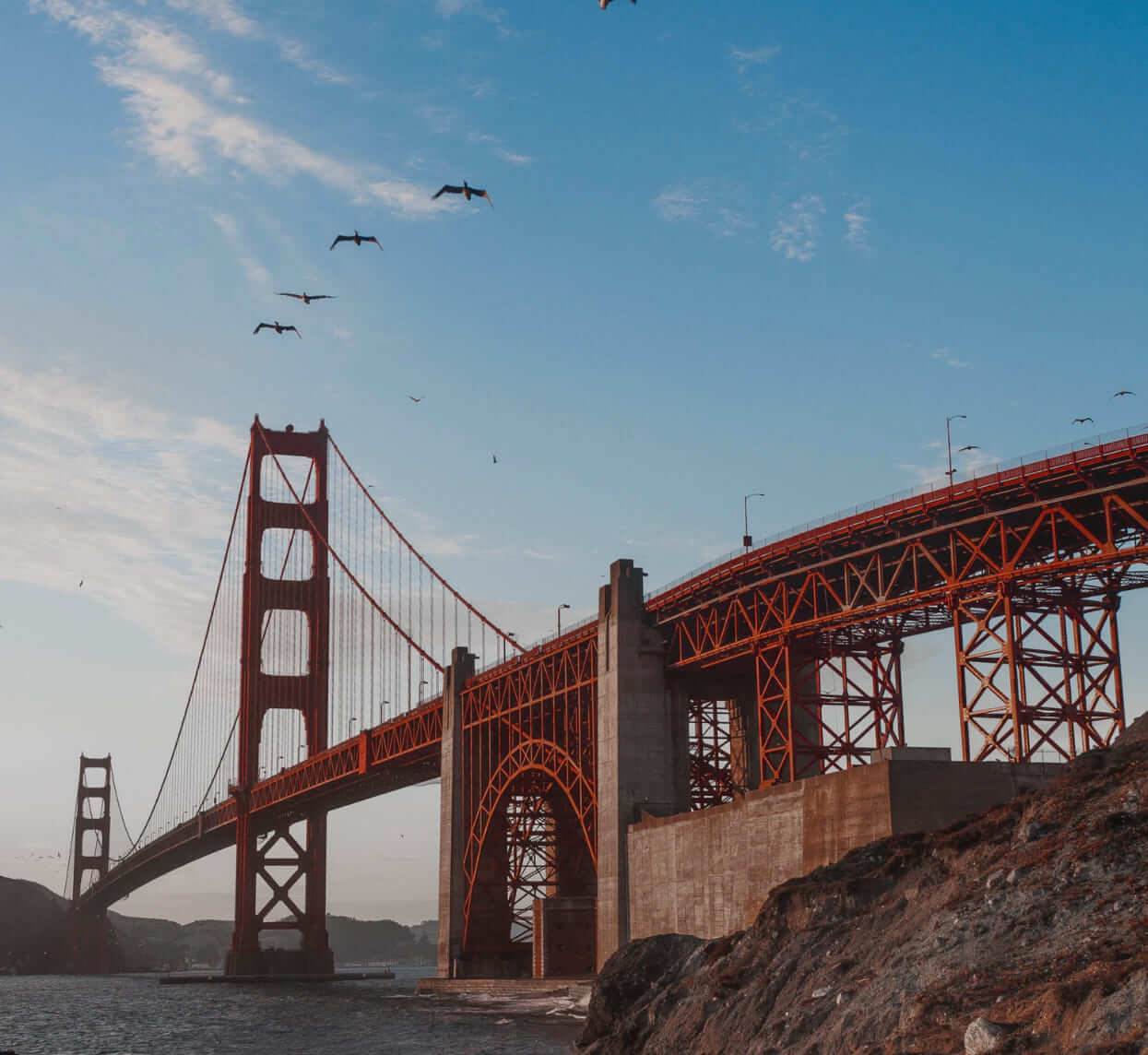
Five years ago Bolivian Express was born between a japanese restaurant and a lift on Avenida 20 de Octubre in La Paz. During the clunky journey from the ground floor to the 17th storey, two young gentlemen and a Swiss-Indian chica lamented the absence of an English-language publication in the country; two notable predecessors—the Bolivian Times and Llama Express—were sadly no longer in circulation. And so the name of the magazine was born as a portmanteau of sorts, an homage to the magazine’s forebearers.
We were determined to find a viable way of printing a quality free publication, given the erratic nature of local advertising revenues and shortage of local English-language journalists. A further (Irish) founder was enlisted and six university friends were boarded on a plane, kidnapped to serve as editorial guinea pigs. It became clear to the founding team that an ideal way of sustaining the project as a whole would be to combine it with a journalism training programme.
What started off as a magazine for tourists quickly turned into something else. After the first 10 issues, we had already covered all the well-trodden festivities and attractions the country is probably best known for. The continuous challenge has been to find new stories from which everyone, including the local audience, can learn something new. Indeed, over half of our readers are native Spanish speakers, so we are as committed to writing for them as we are for the uninitiated in Bolivia. This work has brought us close to people we would perhaps never have had an excuse to get to know: from former presidents, ministers and local sporting heroes, to Michael Jackson impersonators, prisoners serving life sentences and private investigators.
Since our unconventional beginnings, the project has involved over 120 people from 20+ countries worldwide who have come to volunteer as part of the effort.Today, the Bolivian Express team of volunteers live and sleep in a shared house as they explore the country, its stories and cultures with the help of a local team. By looking beyond the salt-flats and ancient ruins, their mission is to bring new eyes to this infinite land. If they leave as cultural ambassadors, rather than just tourists, the project has achieved one of its aims. And, of course, by flicking through these pages you, the reader, are closing the circle and helping to complete this project’s mission.
Over the years we have also worked with a large number of people across the world: editors scattered across San Francisco, New York and Caracas, a web developer in Berlin, an editor and marketing director somewhere in the Swiss alps, and even a virtual assistant in Bulgaria (hey, Pavlin). As past team members have taken on new challenges, others have appeared and have reshaped the project anew. With this, our 50th issue, we are incredibly proud to say that Bolivian Express has a life of its own; it exists as something greater and wiser than the people who have made it possible so far.
Thank you for being a part of this journey.
PHOTO: NICK SOMERS
Behind a nameless, unimposing, wooden door on avenida Ecuador is the shabby and famous restaurant, ‘El Chino Renegón’. The name of the place is unofficial, gifted to this delicious Taiwanese kitchen due to the comical level of brusque service provided by the front of house. No one knows why ‘el chino’ is grumpy and terse all of the time. It could be because his wife is busy cooking for customers and cannot give him the time of day. Maybe it’s because his clients insist on calling him chino despite the copious copies of ‘Taiwán Hoy’ on display in his establishment.
PHOTO: MICHAEL DUNN CACERES
Papá Bolívar in our hearts and celestial blue passion running through our veins. The age-old rivalry fuels an ever unpredictable outcome. Win or lose, triumph or defeat—we are bolivaristas hasta la muerte!
PHOTO: JULES TUSSEAU
Denmark and Bolivia are worlds apart, both geographically and culturally. Yet a Danish community is emerging in La Paz, made up of more than typical expats who have come to ‘find themselves’ in the Andes. These Danes, have brought with them a culture of organic coffee beans, gourmet fine-dining and cafés that unite socialite seniors, book-lovers and vegans.
Magick, Roaster Boutique and Gustu have all become some of my favourite hideouts in La Paz. What do they have in common?: Excellent food, delicious coffee and Danish involvement. Magick is a vegetarian bubble by day and a hive of debauchery and delectable cocktails at night. It boasts a vast selection of organic and vegan dishes and healthy fruity drinks. Here the sugar is brown and the salt is pink. Cholita hats have been fashioned into lampshades and the oriental-style lounge upstairs complements the circus-themed café downstairs that looks like an Old-Curiosity-Shop to form the original dream-like vision that Stephan Gamillescheg has for the place.
Stephan, the owner of Magick, says citizens of Denmark mainly come to Bolivia through charity projects led by Danish NGOs. According to him, some Danes shirk Copenhagen for La Paz in order to set up their own businesses, form a new growing community or, in his case, start a family.
Nom’as Claus Meyer, on the other hand, the owner of Gustu, was drawn to Bolivia not by a woman, but by the potential and quality of raw ingredients in the country. A three-time winner of the World’s 50 Best Restaurants, Nom’as opened what The Guardian’s Ed Stocker has called “a surprise restaurant venture” in the capital. Gustu’s modern and colorful decoration, faultless service and lively atmosphere are only outshone by the journey of experimental flavours that comes hand in hand with entering this Dane’s restaurant. Coca butter, llajwa cocktails, chocolate mousse cake with sultana gelée and coffee fruit ice cream. Gustu transports paceños and tourists alike to culinary finery; just as the impeccable coffee from Roaster Boutique offers up an oasis of earthy, rich and aromatic coffee in a desert of Nescafé and caster sugar.
One thing's for sure: we may not know exactly why these Danes decided to settle in La Paz, but I’m glad they did and I hope they keep on coming.

 Download
Download





















